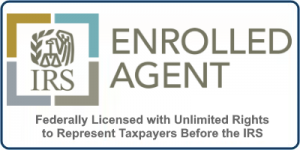Cryptocurrency: Liabilities, Risks, and Warnings
Cryptocurrency is still a fairly new concept, but not to the IRS. In recent years, the Internal Revenue Service has increased its regulating presence in the virtual world in which cryptocurrency exclusively exists.
What is Cryptocurrency?
What is cryptocurrency? If you do not know – OMG, where have you been? If you do – Kudos to you! ;} Seriously, all jokes aside, cryptocurrency is a virtual form of money; digital cash; cyber bucks. Most people are familiar with Bitcoin (as it is overly popular and tremendously expensive – with one share worth over $10,141 as of right NOW!!!! OMG! OMG! OMG!!!) because it has been out for over a decade. [Side story: Back when I first moved to Atlanta, I remember being approached multiple times by young adults advertising for Bitcoin and purchasing into cryptocurrency. I was interested but unable to understand what Bitcoin was or anything related to cryptocurrencies, including things like mining (like wtf?). After a little digging around, I lost interest and went on to the next thing. Fast forward several months later, a relative mentions bitcoin to me. We spoke about it for a few, and I gained interest again, but not too much, as Bitcoin was worth about several hundred bucks at the time. And just in case I have to say this to be clear, ” I DID NOT HAVE SEVERAL HUNDRED DOLLARS TO SPEND ON BITCOIN, PERIOD.”! Time goes on, not too much though, and lo and behold – the prices are in the THOUSANDS!!!! THE THOUSANDS!!! THE FREAKING THOUSANDS!!!!!!! and that is where it has stayed for a few years now. Oh, the MISSED OPPORTUNITY! It is was devastating to find out that not only did I ignored the bitcoin pitch guys, but I also disregarded my relative. But, it is NOT about me!] While Bitcoin is one of the popular ones, there are over 1,600 cryptocurrencies available out in the virtual world.
IRS Definitions
According to the IRS, “virtual currency transactions are taxable like transactions in any other property. Taxpayers transacting in virtual currency may have to report those transactions on their tax returns.”(This is madness) To the average taxpayer that has invested in virtual currency transactions, including the purchase of virtual currency in platforms like Roblox and Second Life, and decide to prepare their own taxes, the IRS statement does not say enough. It does not provide much guidance outside of letting the taxpayer know that there may be reporting of transactions on the tax return. But what does that mean?
It is important for me to explain what a taxable transaction is and what qualifies as one, in regards to virtual currency. A taxable transaction is any transaction that is taxable. Buying shoes is a taxable transaction, as you pay sales tax on the purchase. Selling stock is a taxable transaction that results in a reported gain or loss. Buying alcohol is another taxable transaction, as you pay a liquor and sales tax. For the purposes of virtual currency, a taxable transaction is the same concept. Pretty much if you sold, exchanged, hold, or used virtual currency to purchase goods or services, it is considered a taxable event. Each taxable event can result in a tax. Even if you were gifted virtual currency and have not sold it for a penny, you have to disclose this on your tax return.
What to do next…
If you own cryptocurrency, you should know where you purchased it from. If you don’t there are several tools available online to help you access your wallet. For those that have access to their wallet, the organization you purchased the virtual currency through should provide you with a 1099 statement that shows your transactions for the tax year. If you have not received a 1099 statement from the company, contact the issuing company. For example if you purchased through Robinhood or Ameritrade, a statement should have been sent with a breakdown of all taxable transactions.
To anyone with virtual currency, let me say this, “Report it to the IRS!” (and its fine if you don’t want to deal with the hassle of doing so, or even amending past returns, it is fine, the IRS will eventually get around to mailing you a letter or two about it). But all bulljive aside, you need to know what you are reporting and where to report it
Disclosure and Reporting Requirements
Whether you are a self-preparing taxpayer or you pay someone, like myself, it is important you understand that if you hold, held, or plan on holding any form of cryptocurrency, you are responsible for disclosing and reporting any taxable transaction. But where is that at? (See image below)Well, if you are not careful when preparing your return (for the self-preparers) or if you tax professional is not experienced or aware, the place to disclose this can be completely missed. Taxpayers have to access Schedule 1 of Form 1040 – Additional Income and Adjustments to Income to answer the question pertaining to virtual currency. Answering the question is not the only requirement that has to be fulfilled. If you had any taxable transactions for the year, it has to be reported on Schedule D.

If the process sounds simple, that may be true! If it does not, I am here to help you! Just remember, if you held, hold, plan on holding any form of virtual currency, you are responsible for disclosing this information on your return. If you had taxable transactions for the year, you may have a tax liability. If you have been making money off of virtual currency for years, you will have to amend your taxes to include those transactions for each year you held the assets. If you feel like you are not going to do a damn thing, then that is fine too – “Do what ya do!” – however, beware that the IRS is beginning to crack down on the unregulated world of virtual currency! And I do not mean to sound like some kinda public announcement, however, in 2019, the IRS sent out over 10,000 letters to taxpayers warning – excuse me, informing, that if they have interest in virtual currency it needs to reported and past returns amended. It is estimated the number will increase exponentially for 2020.
Bottom line – if you have just a fraction of a cryptocurrency and you do not ever plan on selling or anything, you still have to check the box on Schedule 1 of Form 1040. If you do not own any virtual currency, you still have to answer “NO” on Schedule 1.
Here are some additional resources from the IRS:

To Represent You

Let’s Grow Together!
“ Reach The Golden One in a method that best fits you – Call, Text, Email or Video Chat – It’s Your Call!”
770-648-4778 or 770-648-4044
